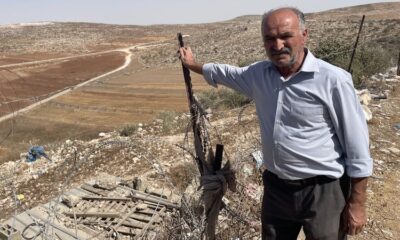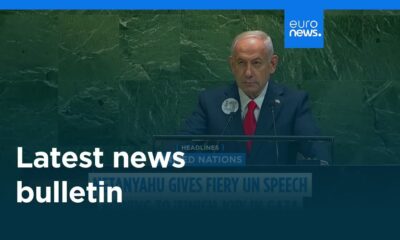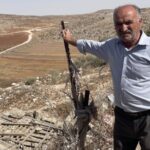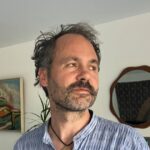Breaking News
Dating app sex assault victim urges others to seek immediate help
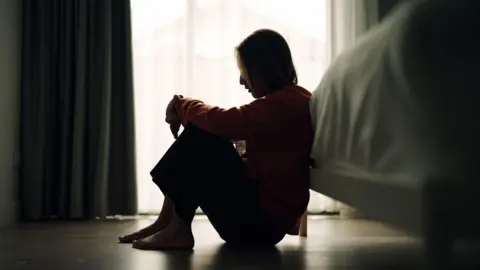
Read more on post.
Kevin SharkeyBBC News NI
A student who was sexually assaulted after meeting a man on a dating app has appealed to other survivors to seek immediate help to ensure there’s a record of the abuse.
The woman, who was 20 at the time, was attacked during a short-term relationship after she moved to Belfast to begin her university studies.
Last year, 25-year-old Fearghall Joseph Mulgrew, of Mullaghmoyle Road in Stewartstown, County Tyrone was jailed after pleading guilty to sexually and physically assaulting the woman.
Sophie, not her real name, believes her attendance at a sexual assault referral centre afterwards was crucial to the prosecution.
- Warning: Some readers may find parts of this article distressing
A judge at Belfast Crown Court said Mulgrew subjected the woman to a “degrading and frightening” experience, and he used her “as a sexual toy whose personal integrity and feelings were entirely subservient to your sexual desires”.
He was given a 22-month sentence in April 2024, serving 14 months on licence.
The court was told Mulgrew was a student in Belfast when he initially met the woman on the dating app Tinder in March 2021.
They agreed that the woman would come to his accommodation for “rough” intercourse at 03:00 GMT.
The woman said it was not something she had done before, but she agreed to try it, and the pair had consensual sex.
‘He wanted to do things his way’
The victim, who wishes to remain anonymous, has now spoken about her ordeal and explained that they had been in a casual relationship for about a month.
“The day of the incident he’d made it clear that he wanted to do things his way which included rough sexual contact. I hadn’t quite expected it to be what it was,” she told BBC News NI.
“He bit me, you know, in intimate areas where I had to kick him to get him off, to get him to stop, and even though we had a safe word he made it very obvious that that wasn’t even going to work, and he held my mouth closed with his teeth so I couldn’t say anything.
“That’s what sticks with me the most, the biting, it was all over my face.”
Reporting to police
Sophie, who has since left Northern Ireland, went to the Rowan sexual assault referral centre for help soon afterwards but she did not report the incident to the police until almost a year later.
She now believes her attendance at the centre was crucial to the subsequent prosecution of her abuser.
“I would advise that, even if you don’t know, because sometimes you can be so confused and so in shock that you don’t know but you think, then just get yourself looked at.
“For me, if I hadn’t gone to the Rowan, me reporting to the police would have been 100% more difficult. They wouldn’t have had my statement from the time, they wouldn’t have had photographs, and they wouldn’t have had all the swabs and things that they took.
“That evidence is invaluable especially if you are going into court,” she said.
 Reuters
ReutersHow are police tackling violence against women?
It has been three years since the Police Service of Northern Ireland (PSNI) launched an action plan to tackle violence against women and girls (VAWG).
The PSNI said it had made 5,042 arrests by the end of August 2025 under new legislation and conducted hundreds of targeted patrols.
They said they have also put in place four stalking protection orders using the new laws.
Each month, 84 arrests have been made on average for domestic abuse, there have been an average of 19 arrests each month for the offences of stalking, threatening and abusive behaviour, and 76 arrests each month for non-fatal strangulation.
In the 12 months to July 2025 there were 21,729 violence against women and girls (VAWG) offences recorded – a reduction of 4% compared to the previous 12 months.
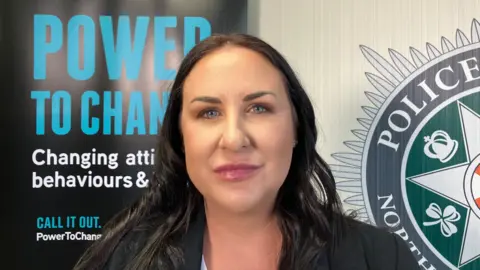
Det Ch Insp Leah Crothers, one of the PSNI’s tackling VAWG leads, said they “remain committed to doing everything” they can to prevent harm and call out unacceptable attitudes and behaviours.
“We have always been clear that it will take a societal effort to make a real change,” she added.
“Tackling violence against women and girls requires commitment from all — where perpetrators are held to account, communities stand together, and we work with partners to make every space safe. This remains our goal.”
Sophie said “too many men had blurred lines of consent and a misogynistic view on life”.
“I and so many other young women have suffered because of this. I am standing up to say it is not right and the only way to put a stop to it is to educate men and boys and for women like me to feel supported enough to report.”
If you are affected by domestic abuse, there is a range of support services available via the BBC’s Action Line page.
Breaking News
West Bank: Tales of the dispossessed
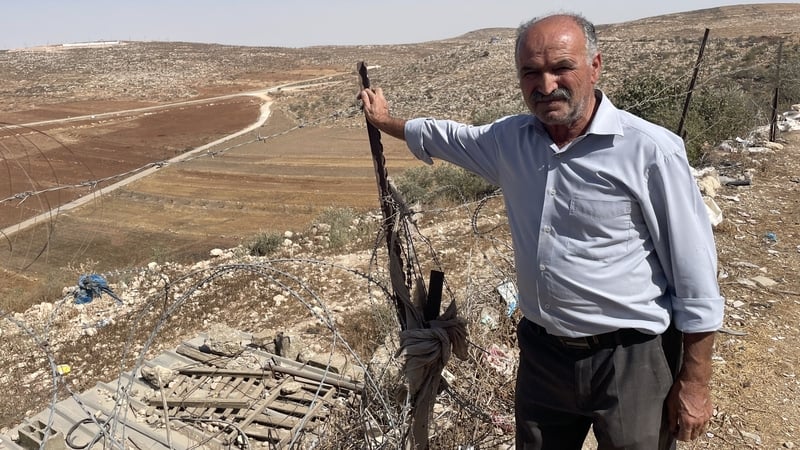
This post was originally published on this site.
Continuous expansion by Israel of settlements in the West Bank is pushing Palestinians out of their homes and move elsewhere.
The pattern consists of settler attacks on Palestinian farms and villages, often aided and abetted, say locals, by the Israeli military.
According to the West Bank Protection Consortium (WBPC), comprising five NGOs and funded by the EU, between January 2023 and July of this year, almost 2,700 Palestinians, or 421 households, were forced out of their communities.
Europe Editor Tony Connelly speaks to locals struggling to protect their livelihoods as they are pushed off their lands.
At 10am on 2 August, an Israeli was injured in an altercation near an illegal settler outpost north of Ramallah. The settler claimed his attacker had retreated to the adjacent village of Al-Mughayyir.
Within an hour, two busloads of Israeli troops and 18 jeeps seized the village, preventing locals from entering or leaving and shuttering shops.
At that point, ten D9 Caterpillar bulldozers set about uprooting and destroying around 10,000 olive trees, laying waste to a swathe of the valley below the town.
The residents of Al-Mughayyir believe the alleged attack on the settler was a pretext for a prepared plan to confiscate more Palestinian land.
“The accident happened at 10am,” says Marzouq Abu Naem, deputy head of the local municipality. “At 11am, all the security forces were here. Not even the United States could react that fast.”
By the end of the operation, the olive groves had been reduced to a dull swathe of empty earth. Some 43,000 dunams (a unit of land roughly equivalent to one quarter of an acre) of Palestinian land had been seized or at least put off limits to locals.
“We’re talking 10,000 trees,” Abu Naem tells RTÉ News. “That would have provided 5,000 gallons of olive oil, each gallon worth $150. All that income has gone, just like the olive trees themselves. It represented our history, our culture. The owners of the trees, when they saw what had happened, collapsed in grief.”
Six minutes drive away, Turmus Ayya overlooks another valley of olive groves. On the far side is the hilltop Jewish settlement of Shilo, built in 1978 and expanded by 60% in 2012 (a move then condemned by the EU as a provocative breach of international law and contrary to peace negotiations).
“This is absolutely legally my land. And I have the paperwork, I have the title documents, the register”
The valley was already notorious for clashes between Palestinians and settlers: in June 2023, four Israelis were killed, and in response, hundreds of masked settlers firebombed the town, killing one local.
The Hamas attacks of 7 October escalated tensions sharply. Locals say settlers upped their aggressive tactics, expanding into the valley and cutting off access to olive groves, some of which have already been destroyed and replaced by vineyards.
“If I went down to my olive trees, a gun would be drawn against me: leave, or else,” says Yasser Alkam, a US citizen and semi-retired attorney, who returned in 2022 with his wife Jenan, from their home in Anaheim, California, to manage his father’s olive grove in the ancestral home.
“This is absolutely legally my land. And I have the paperwork, I have the title documents, the register.”
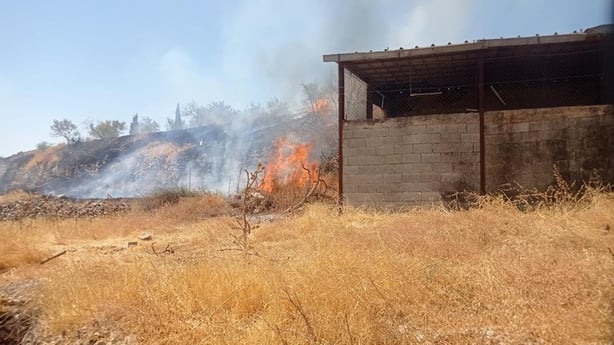
Notwithstanding the horrors of Gaza, the pattern of settler expansion in the West Bank has become a new ground zero in the geopolitics of the Middle East.
The pattern consists of settler attacks on Palestinian farms and villages, often aided and abetted, say locals, by the Israeli military. These are focused on what is called Area C, an administrative zone established by the Oslo Accords in which Israel has complete military control, with some civilian services being provided by the Palestinian Authority.
Area C is the most fertile and spacious part of the West Bank and, according to Palestinians, would provide the bulk of a future state.
However, it is a zone with a spectacularly built-in bias in favour of Israeli settlers: permissions for expanding settlements are normally given, while only 1% of applications for Palestinian planning permission is granted.
The seizure of Palestinian land is exacerbated by the demolition of their homes and villages on the basis that – according to the settlers who carry out the demolitions – they don’t have the proper “permits”.
This forces Palestinians to move elsewhere, often out of Area C and into poorer, more crowded parts of Areas A and B, with Bedouin shepherds hounded off their traditional pastures.
A UN inquiry has found that approximately 2,000sq/km have been confiscated in Area C alone since 1967, amounting to more than a third of the West Bank.
Those confiscations are intensifying.
According to the West Bank Protection Consortium (WBPC), comprising five NGOs and funded by the EU, between January 2023 and July of this year, almost 2,700 Palestinians, or 421 households, were forced out of their communities.
“A growing tactic is the establishment of new settler caravans and structures directly beside Palestinian villages,” says a recent WBPC report. “These ‘outposts’ bring intensified violence, constant military presence, and further loss of land and access to services. The effect is to surround communities and gradually make daily life impossible.”
That incremental encroachment through the use of small outposts appears to be the case in Turmus Ayya.
We need your consent to load this rte-player contentWe use rte-player to manage extra content that can set cookies on your device and collect data about your activity. Please review their details and accept them to load the content.Manage Preferences
“That tent we see there,” says Alkam, pointing down to an encampment several hundred metres away in the valley. “Two weeks ago, there was one single tent. Now you can see two, one on the right side of the street and one on the left side. Now they have water tanks, equipment, and it continues to spread out closer and closer to the town.”
Such tactics have already seen communities displaced across the West Bank: in Khallet a-Thabe’, south east of Ramallah, 95% of the village was demolished, forcing locals to live in caves, which were then sealed or destroyed by Israeli forces, according to the WBPC.
“Forcible transfer in the West Bank results from a systematic environment that makes life unlivable: repeated demolitions, denial of permits, settler violence (often in the presence of Israeli forces), land confiscation, restrictions on movement, and cuts to water and electricity,” according to the WBPC report.
In its advisory opinion in July last year, the International Court of Justice (ICJ) found that such actions were in clear breach of the Geneva Convention, which “strictly prohibits forcible transfer of protected persons,” and that, as the occupying power, Israel is legally responsible.
The report concluded that the “continuous expansion by Israel of settlements and related infrastructure actively contributes to the entrenchment of the occupation”.
That entrenchment appears to be the current policy of the government of Prime Minister Benjamin Netanyahu, under pressure from far right members of his cabinet.
In November 2023, finance minister Bezalel Smotrich called for the government to “create sterile security areas around (Jewish) communities and roads and prevent Arabs from entering them, including for the purpose of olive harvesting”.
The far-right are now making an explicit link between recognition and settlement expansion.
In July, Smotrich announced that “for every country that unilaterally recognises a Palestinian state, we will establish a settlement.”
Following Ireland’s recognition – alongside Spain, Norway, Armenia and Slovenia – Smotrich said Israel would “recognise” five illegal settlements in the West Bank.
After ten countries this week formally recognised a Palestinian state, Itamar Ben Gvir, another far-right minister, went further.
“The recognition by Britain, Canada, and Australia of a Palestinian state… requires immediate counter measures: the swift application of sovereignty in Judea and Samaria (the Israeli name for the West Bank) and the complete dismantling of the Palestinian Authority.”
On Wednesday, US President Donald Trump met leaders and senior officials from Saudi Arabia, Qatar, Turkey, Jordan, the UAE and Indonesia on the margins of the UN General Assembly and presented them with a 21-point peace plan to end the Gaza War.
They reportedly laid down several conditions to the plan, which develops a number of existing initiatives, and expressed “grave reservations” about Israel annexing the West Bank.
The next day, Trump told reporters in the Oval Office that he would “not allow” that to happen.
He may have given Israel wiggle room, however, and much will depend on Trump’s meeting with Netanyahu on Monday.
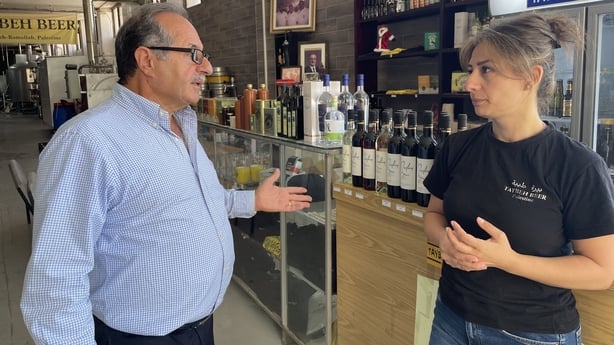
On Thursday, the Israeli foreign minister, Gideon Sa’ar said there was “no intention of even discussing the annexation of Palestinian Authority territories because we don’t want to control the Palestinians”.
However, he added: “What can be discussed, but hasn’t yet been decided, is implementing Israeli law on the Israeli communities located there and not under the Palestinian Authority.”
That would be tantamount to selective annexation.
Palestinians say the Palestinian Authority (PA) is already being slowly asphyxiated by vindictive Israeli security measures.
In June, after Australia, Canada, New Zealand, Norway and the United Kingdom announced sanctions against Ben Gvir and Smotrich, the latter ordered the suspension of the indemnity which allows Palestinian banks to interact with their Israeli counterparts in response, he said, to the “delegitimisation campaign against the State of Israel internationally”.
We need your consent to load this rte-player contentWe use rte-player to manage extra content that can set cookies on your device and collect data about your activity. Please review their details and accept them to load the content.Manage Preferences
Given that PA has no central bank or currency, West Bank businesses rely on an interbank arrangement with Israel to import and export goods. Smotrich’s move could be economically devastating.
This comes on the back of the denial of customs clearance revenue due to the PA and the blocking access to West Bank residents working in the service sectors of the Israeli economy.
Locals complain that the Israeli military are increasing road closures and checkpoints, making economic life ever more difficult.
“It’s exporting, going through additional security checks for no reason, more delays getting permits to pass through the commercial checkpoints to get to the port (in Israel),” says Madees Khoury, who works for the Taybeh Brewing Company, whose water supply has been reduced to one day a week after settlers allegedly smashed water pipes serving 14 Palestinian villages near Ramallah.
Nowhere is the link between settlement expansion and the crushing of statehood aspirations more graphically on display than the E1 Construction Project.
Originally conceived in 1991, the plan would provide for the expansion of the large and long established Ma’ale Adumim settlement westward towards East Jerusalem, with an extra 3,400 homes as well as industrial and commercial zones.
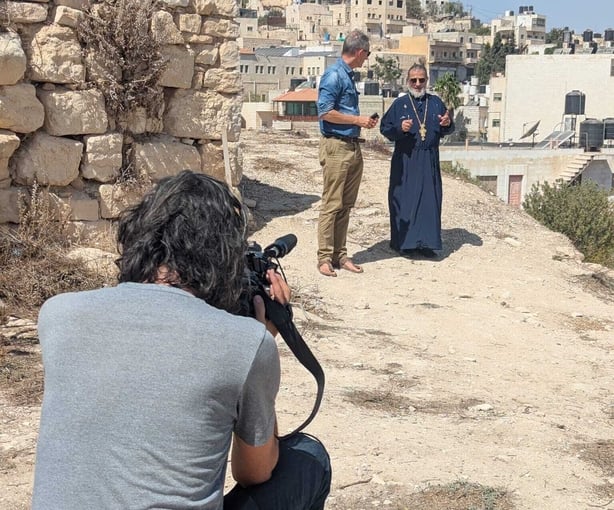
The effect would be to link up Ma’ale Adumim with Jerusalem, but, according to critics, it would cut the West Bank off from East Jerusalem, the notional capital of a future Palestinian state, and make travel between the north and south of the West Bank significantly harder.
While the European Union has long condemned the E1 Construction project as threatening the viability of a contiguous Palestinian state, it has been supported by successive Israeli prime ministers, who claim it is important for Jerusalem’s security, and has only been held back due to periodic pressure from the United States.
But Israeli attitudes have hardened, and any denial that the E1 risks the viability of a Palestinian state appears to have been dropped.
On 14 August, Smotrich announced that the project was about to be given the go ahead.
“Those in the world trying to recognise a Palestinian state will get an answer from us on the ground,” he said. “Not through documents, not through decisions or declarations, but through facts. Facts of homes, neighbourhoods, roads and Jewish families building their lives.”
After the Supreme Planning Council duly approved the plan, it was launched by Netanyahu on 11 September. To vigorous applause, he declared: “We said there wouldn’t be a Palestinian state, and we say again there won’t be a Palestinian state. This place is ours. We will take care of our country, our security and our heritage.”
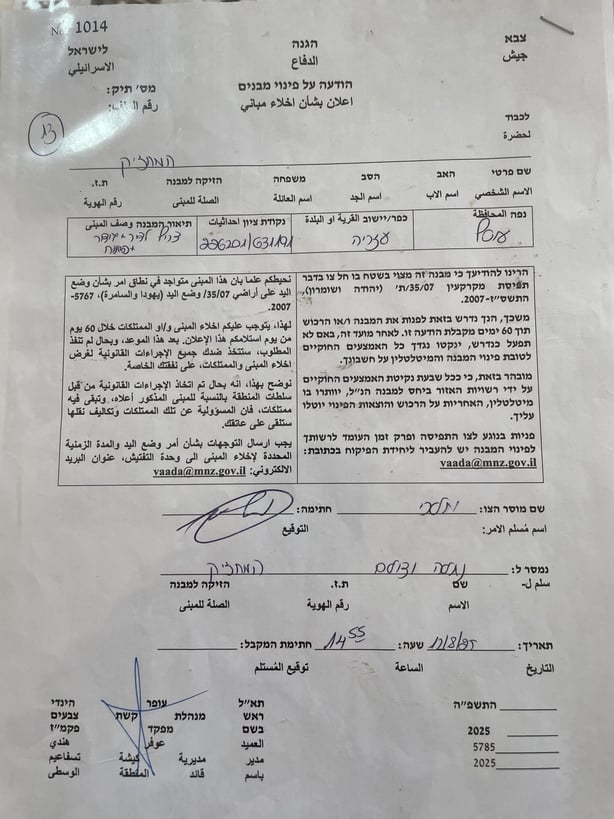
On 12 August, two days before Smotrich’s announcement, Attalah Jahlein, a member of one of 18 Bedouin tribes that have for centuries used the 12sq/km stretch of mountains and valleys as pasture land, received a letter from the authorities.
It stated: “You must vacate the building and/or property within 60 days from the date you receive this notice. After this date, if you do not comply, all legal measures will be taken against you to vacate the building and property, at your own expense.”
In other words, Jahlein’s property would be demolished, and he would have to pay for the demolition.
“At that moment, we felt like it was the end of our existence, but we will keep struggling,” he told RTÉ News.
“It will kill the dream of a Palestinian state, take a lot of land from Jerusalem, and, in particular, it will separate the south from the north of the West Bank. It will destroy Bedouin life in the area.”
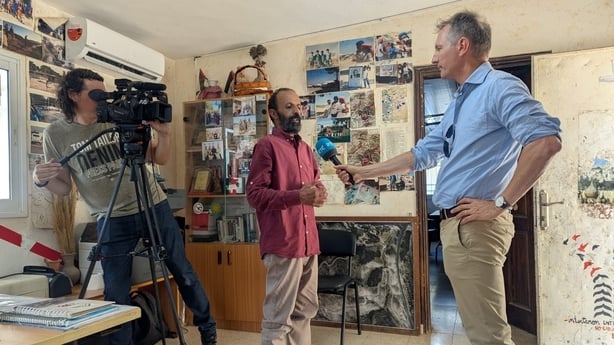
In Ma’ale Adumim itself, a pristine and palm tree studded settlement with some 50,000 residents – many from the Jewish diaspora – locals are dismissive of Palestinian claims and enthusiastic about the commencement of the project, claiming it will provide jobs for Palestinians.
“We live here,” says Kobi Eini, a 36-year-old resident.
“People are moving here, we need to expand for more people to move in. It can also lead to a solution. You can’t just stand by and wait.”
Breaking News
Iran faces reintroduction of nuclear sanctions
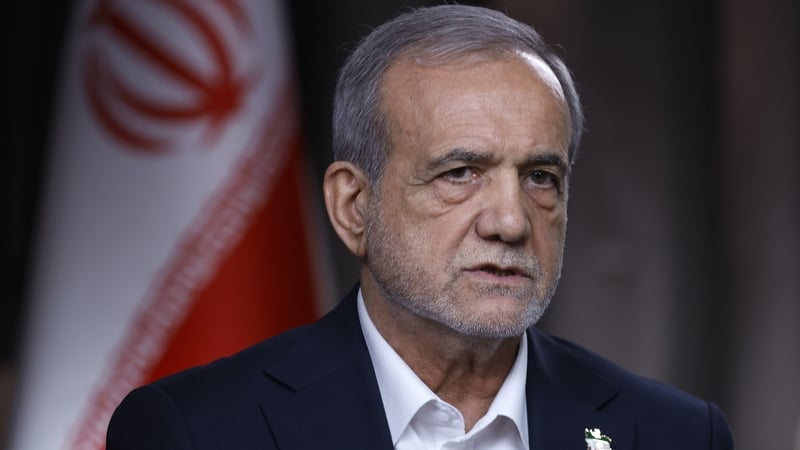
Read more on post.
Deep sanctions on Iran over its nuclear programme look set to go into force once again, even as a UN watchdog confirmed inspections of its atomic sites had resumed.
Russia failed in an effort with China yesterday to delay the reimposition of the measures on Iran, with Russia raising the prospect that it may not enforce the sanctions – despite being required to under international law.
European powers triggered the process to reimpose economic sanctions after demanding Iran reverse a series of steps it took after Israel and the United States bombed its nuclear sites in June.
The UN’s nuclear watchdog, the IAEA, did confirm that inspections of Iranian nuclear sites had resumed this week after a hiatus following the US and Israel’s strikes.
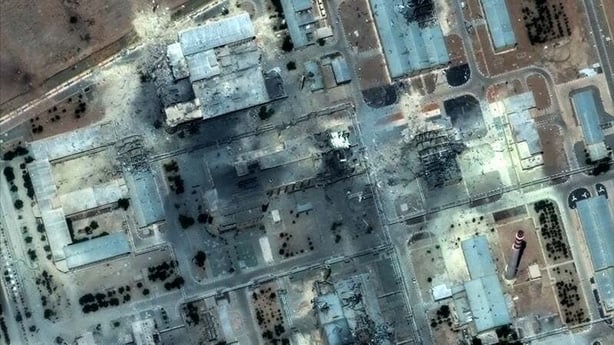
Resumption of the International Atomic Energy Agency’s inspections was a key measure demanded by the Europeans – Britain, France and Germany.
“I signed an agreement with the agency in Cairo and the director general of the agency is quite satisfied and happy,” Iran’s Foreign Minister Abbas Araghchi said.
Mr Araghchi has insisted any effort to reimpose sanctions is “legally void,” vowing never to “bow to pressure” on its nuclear programme – but left the door open to more talks.
Iran’s President Masoud Pezeshkian said Iran would not leave the Nuclear Non-Proliferation Treaty in retaliation to sanctions being reimposed.
China and Russia’s effort to buy time for diplomacy was rejected by nine countries against four in favour.
“UN sanctions, targeting Iranian proliferation, will be reimposed this weekend,” said Britain’s ambassador to the UN Barbara Woodward.
“We stand ready to continue discussions with Iran on a diplomatic solution to address international concerns about its nuclear programme. In turn, this could allow for the lifting of sanctions in the future,” she added.
Read more: UN nuclear watchdog chief says inspectors ‘back in Iran’
The UN sanctions, notably on Iran’s banking and oil sectors, are set to take effect automatically at the end of today.
China and Russia at the Security Council session pushed a resolution that would have extended talks until 18 April 2026.
“We had hoped that us, that European colleagues in the US, would think twice, and that they would opt for the path of diplomacy and dialog, instead of their clumsy blackmail,” the Russian deputy ambassador to the UN told the council prior to the vote.
“Did Washington, London, Paris, Berlin make any compromises? No, they did not,” he added.
‘Several workable solutions’
France’s ambassador to the UN Jerome Bonnafort told the council all sides had been “trying to find, until the very last moment, a solution.”
France – speaking for itself, Germany, and Britain – has told Iran it must allow full access to UN nuclear inspectors, immediately resume nuclear negotiations, and offer transparency on highly enriched uranium, the whereabouts of which has been the subject of speculation
The European nations “and the US have consistently misrepresented Iran’s peaceful nuclear programme,” said Mr Araghchi who insisted Iran had put forward “several workable” proposals.
The European countries’ “pursuit of the so-called ‘snapback’ is legally void, politically reckless and procedurally flawed,” he said.
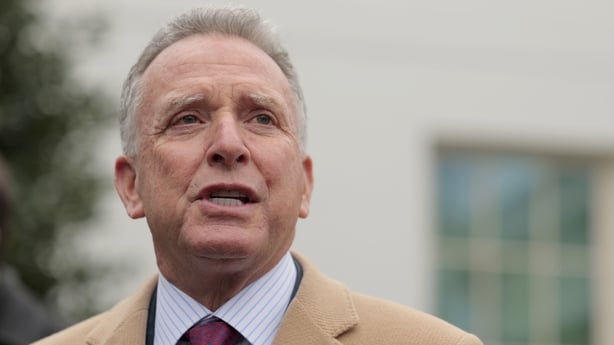
The 2015 deal, negotiated during Barack Obama’s presidency, lifted sanctions in return for Iran drastically scaling back its controversial nuclear work.
US President Donald Trump in his first term withdrew from the deal and imposed sweeping unilateral US sanctions, while pushing the Europeans to do likewise.
Steve Witkoff, Mr Trump’s roving envoy who had been negotiating with Iran until Israel attacked, said that Iran was in a “tough position” but also held out hope for a solution.
But Iran’s president was withering in his assessment of the United States diplomatic efforts, claiming that Mr Witkoff and his team were not serious.
“We came to understandings a number of times but they were never taken seriously by the Americans,” Mr Pezeshkian told reporters on the sidelines of the UN General Assembly.
Iran has long contended that it is not seeking nuclear weapons, pointing to an edict by Supreme Leader Ayatollah Ali Khamenei, and US intelligence has not concluded that the country has decided to build a nuclear weapon.
Breaking News
Guinea Supreme Court confirms vote to change constitution
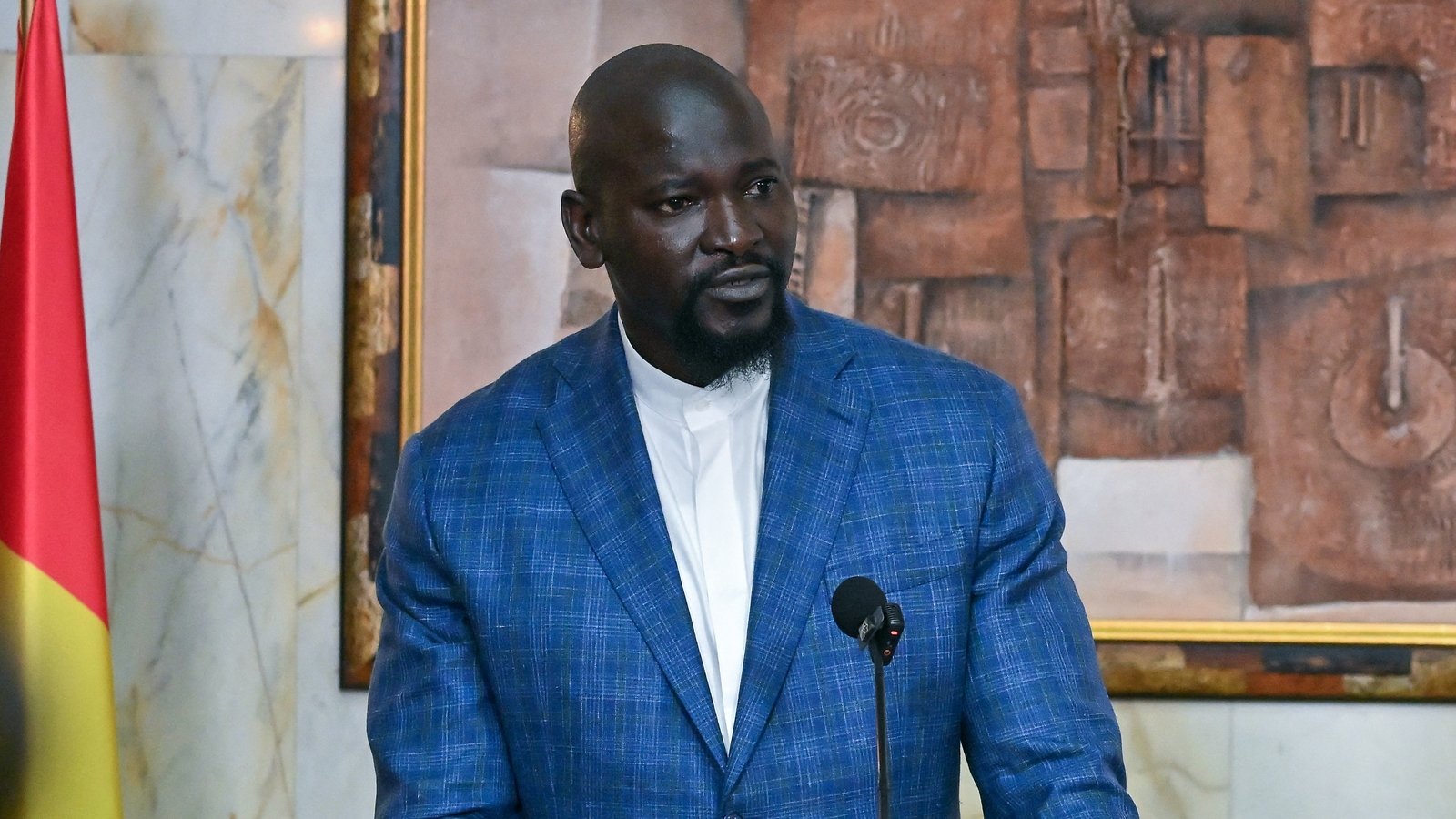
Read more on post.
Guinea’s Supreme Court confirmed the result of a referendum to approve a new constitution in the junta-ruled country, saying it was backed by an overwhelming majority of voters.
The final tallies – 89.38% in favour and 10.62% against – confirmed the provisional vote results announced on Tuesday evening.
Opposition parties had called on voters to boycott last Sunday’s referendum, accusing General Mamady Doumbouya of using it to stay in power.
Earlier, they had filed a request to the court to annul the result. The request was rejected.
The court’s confirmation paves the way for elections to be held in December.
The signs suggest that Mr Doumbouya will run for the presidency, despite an earlier promise that he would not.
Guinea, an impoverished nation in west Africa, has long been blighted by coups and violence from authoritarian regimes.
When the military toppled President Alpha Conde in 2021, they initially said they would return the country to civilian rule by 2024, before reneging on that commitment.
United Nations rights chief Volker Turk called on the military regime to lift bans on opposition parties and media outlets.
He also criticised what he said was a broader assault on fundamental rights in Guinea since the coup, referring to a rise in arbitrary arrests and enforced disappearances.
-
Culture3 weeks ago
Life, loss, fame & family – the IFI Documentary Festival in focus
-
Politics4 days ago
European Parliament snubs Orbán with vote to shield Italian MEP from Hungarian arrest
-
Culture2 months ago
Fatal, flashy and indecent – the movies of Adrian Lyne revisited
-
Environment1 week ago
Key oceans treaty crosses threshold to come into force
-
Health5 days ago
EU renews support for WHO’s Universal Health Coverage Partnership
-
Culture4 days ago
Twilight at 20: the many afterlives of Stephenie Meyer’s vampires
-
Culture1 week ago
Farewell, Sundance – how Robert Redford changed cinema forever
-
Culture4 weeks ago
What is KPop Demon Hunters, and why is everyone talking about it?



